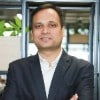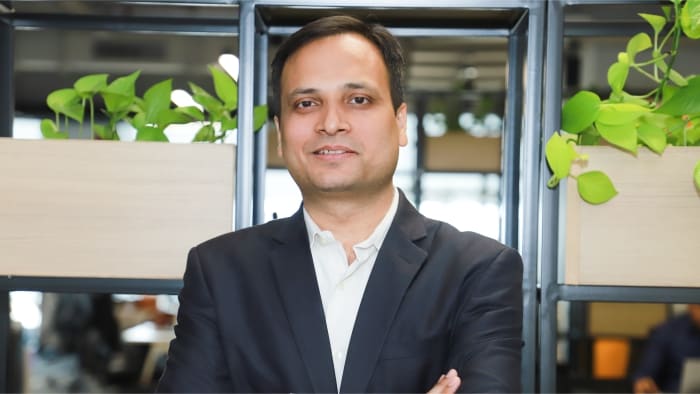Aug 28, 2025
How artificial intelligence is redefining the future of diagnosis?
In the rapidly growing Indian diagnosis industry, cutting-edge innovations such as artificial intelligence (AI) have become a revolutionary force. AI aims to support earlier detection, shifting from reactive diagnostics to more proactive approaches, which may contribute to timely interventions and improved patient outcomes. AI is bridging the gap in terms of time, cost, and accessibility. From detecting tuberculosis in rural villages to predicting how the cancer patient might respond to therapies based on genetics and imaging, AI-powered diagnostics are redefining what's possible in-patient care. The Philips Future Health Index 2025 (FHI)* India report indicates that healthcare professionals recognize AI's potential to help reduce administrative burden, assist in disease diagnosis, potentially reduce avoidable hospital readmissions, and support improved patient outcomes.
The scope of AI in diagnostics is vast. With the help of AI algorithms, complex datasets ranging from genomic profiles to electronic health records, can be analysed and certain anomalies and patterns can be comprehended by the clinicians. As per 2025 Boston Consulting Group’s study**, AI implementation has been associated with reductions in diagnostic reporting time in radiology and mammography costs in certain settings. As AI integrates with telemedicine and portable devices, it bridges urban-rural healthcare gaps, ensuring equitable access to cutting-edge diagnostics.However, this revolution often comes with significant challenges - data privacy concerns, interoperability hurdles, and the critical need for explainable AI algorithms that clinicians can trust. As India stands at the forefront of this diagnostic transformation, the path forward demands careful balance: robust regulatory frameworks, substantial investments in AI infrastructure, and innovative public-private partnerships.
The AI advantage
AI-driven diagnostic procedures come with myriad benefits, including speed, accuracy, cost-effectiveness, and the ability to process vast amounts of medical data efficiently. By combining imaging and informatics, with hardware, software, and AI – altogether this is helping to reduce waiting times and consistently deliver high-quality care. AI is deeply embedded into complete radiology workflow – patient positioning, scan planning, image reconstruction and post processing enabling reduction in dose and contrast, higher speed, and better image quality. If we take the example of Cardiac CT, hardware is rapidly reaching its physical limitations in suppressing cardiac motion and represents a large financial investment. Today, software and AI are driving the next leap in cardiac image quality and motion control – offering more affordable CT solutions and broader patient access.
At Philips, AI is being used to enable better care for more people. Our scientists at Innovation centers work with clinicians to build AI models which are inclusive, safe and help clinicians augment their work. Our Innovation campus at Bengaluru developed SmartSpeed - an AI-assisted solution designed to help enable faster MRI scans with improved resolution, supporting radiologists in their diagnostic workflow. This wasn’t a standalone innovation. It is the result of co-creation with clinical experts at clinical sites.
AI enables healthcare professionals to focus more on patient care by reducing administrative burdens. Smart workflow of radiology systems is enabled by AI featuring to automate certain routine workflow tasks to help support clinical teams. These tools are intended as decision support aids—not replacements for clinical judgement—and are subject to validation and regional regulatory approval.
Balancing Promise and Prudence: Challenges Ahead
Amidst these potential advantages, the integration of AI into healthcare diagnostics comes up with many challenges and concerns. The foremost among is the matter of data privacy and security, which assumes critical significance. Healthcare institutions must ensure that patient data used to train AI models is properly anonymised and safeguarded against breaches. Interoperability is another potential challenge. The seamless integration of AI systems into existing healthcare infrastructure necessitates consistent data exchange. However, technical, and organisational hurdles can hinder this process. The need for enhanced interoperability has been underscored as pivotal to unlocking the full potential of AI in healthcare. Furthermore, there is genuine concern about the reliance on AI to make critical medical decisions without a comprehensive understanding of the reasoning behind its decisions. Clear and explainable AI algorithms are vital not only for building trust but also for making better decisions in clinical settings. The bottom line is that clinicians aren’t just end-users of AI. They are the gatekeepers, validators, and champions of trusted use in care. All AI models require deployment under strong ethical governance, transparency, and clinician explainability standards. These systems are not medical devices on their own, and Philips products are designed with appropriate safety controls, validation processes, and explainable AI frameworks as required by applicable regulatory bodies.
Way Forward
At a time when the regulatory environment for AI-based medical diagnostic tools is volatile, India must invest in AI infrastructure, skilled professionals, and adaptive regulatory frameworks to harness the full potential of the cutting-edge technology. Safeguarding data privacy and obtaining patient consent is of paramount significance. These diagnostic tools rely on extensive patient data, including sensitive medical information. Consequently, stringent measures for data privacy are imperative to ensure the confidentiality of patient information and compliance with regional data protection laws such as GDPR (Europe) and HIPAA (USA) where applicable, is essential. Data used to train AI models must be anonymised, encrypted, securely stored, and consented to by patients, in line with Philips internal policies and local legal requirements. Healthcare providers and payers are increasingly seeking integrated end-to-end solutions. This means ecosystem collaboration is critical. AI isn’t just the future—it’s transforming healthcare today. By marrying cutting-edge technology with human expertise, India can lead the global charge toward preventive, equitable, and patient-centric diagnostics. AI may play a role in addressing increasing procedure volumes by potentially supporting productivity, assisting diagnostic processes, and contributing to treatment planning and clinical outcomes.
Source* - https://www.philips.co.in/a-w/about/news/future-health-index/reports/2025/building-trust-in-healthcare-ai.html - Future Health Index data are survey based and not medical evidence. Survey findings do not constitute endorsement of specific clinical effectiveness.
Source** - https://medicalbuyer.co.in/india-emerging-as-leader-in-ai-adoption-healthcare-diagnostics-lead-charge/
DISCLAIMER
Information, estimates, expectations, and business plans in this press-release may include forward-looking statements for knowledge sharing purposes and not intended to provide medical advice, diagnosis, or treatment suggestions. All information provided by or on behalf of Philips (or any of its affiliates) is provided on an “as is, where is” basis, and no representation or warranty, express or implied, regarding the accurateness or correctness thereof is assumed by Philips in any manner. Philips shall not be liable for any damages arising from the contents including but not limited to direct, indirect, incidental, punitive, and consequential damages.
This article is intended for informational and educational purposes. References to AI, imaging technologies, or clinical outcomes are illustrative and do not guarantee performance in every context. Products described are subject to regulatory clearance in each jurisdiction. Philips makes no warranties, express or implied, and disclaims liability for actions taken based on this content. The information contained in this article is for general information purposes only and does not constitute medical advice.
Please click on this link to access the article - How Artificial Intelligence is redefining the future of diagnosis












